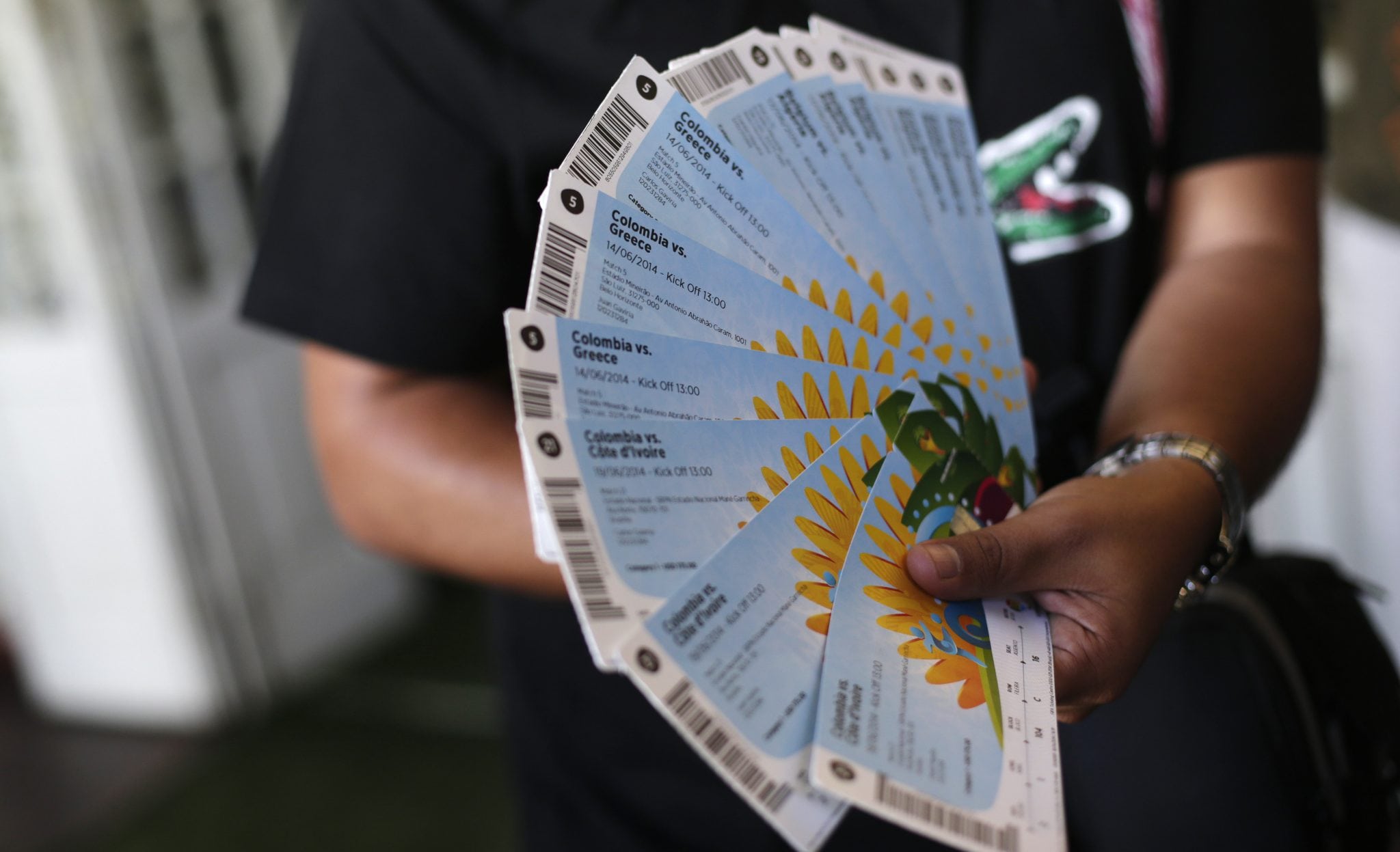Skift Take
Despite Brazil's infrastructure delays and the rising probability of protests, tourists will still travel to the games, sleep in hotels, and eat local food. Whether the more than $3 billion economic boost is worth the criticism and political strife is yet to be determined.
Foreign tourists headed to Brazil for the World Cup next month are expected to spend $2,500 a person, according to new research from Brazil’s Ministry of Tourism and the Economic Research Institute Foundation.
The 300,000 foreign tourists set to visit Brazil specifically for the World Cup are expected to spend the most of the 3.7 million people traveling the country next month.
In total, these tourists will have likely spent more than $2,500 for the experience. That number does not include airfare or costs incurred at home suggesting that foreign tourists will spend upwards of $4,000 to attend the 2014 matches.
“Tourists who come to the matches are the visitors who spend the most. This is an important audience, and we want to win them over during the World Cup,” Minister of Tourism Vinicius Lages said in a statement.
The ministry forecasts direct visitor spending will add $3.03 billion boost to Brazil’s economy and that indirect or related transactions could nearly double that amount.
“In other words, the total financial turnover for tourism during the 2014 FIFA World Cup may be more than double the anticipated figure if we consider the multiplier effect of these resources in the Brazilian economy,” said Minister Lages.
Of the 3.7 million tourists, about 1.9 million will attend matches and official FIFA Fan Fests. The other 1.8 million are expected to only take part in parties and activities linked to the World Cup.
The Daily Newsletter
Our daily coverage of the global travel industry. Written by editors and analysts from across Skift’s brands.
Have a confidential tip for Skift? Get in touch
Photo credit: A Colombian fan displays his FIFA 2014 World Cup tickets for the match between Colombia and Greece, in Rio de Janeiro April 18, 2014. Ricardo Moraes / Reuters
